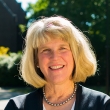Career Advancement
Career Advancement can mean different things to different people. For some, advancement means reaching a leadership position within a company or a field. For others, advancement means performing at a high level in a given role. Sometimes, advancement means switching careers entirely to learn a whole new domain, or focusing on giving back to a field or a community.
Self assessment
It is difficult to advance in one’s career without self reflection and knowing your own strengths and weaknesses. We recommend several tools to help you understand yourself more thoroughly, give you language to help express what you can bring to an organization, and give your career direction more clarity.
Self assessment is also a starting place to help improve emotional intelligence. It makes sense that if we wish to improve the way we understand and work with others, we should start with ourselves. The first step would be to actively seek feedback from supervisors, peers, and direct reports to see if how we perceive ourselves matches how others perceive us. There are both formal and informal ways to obtain this feedback; some companies offer opportunities for employees to take part in such an assessment.
Questions to ask:
- Where do I feel less sure of myself?
- What feedback have I received that highlights areas for improvement?
- What skills or traits do I admire in others that I would like to emulate?
- Am I able to articulate my values and professional interests clearly?
Resource Examples
- MBTI (Reach out to Dana Keep (dkeep@wellesley.edu) or Becky King (bking2@wellesley.edu) to request access to the assessment. Then make an appointment in person or by phone to go over the results.)
- CliftonStrengths (Reach out to Dana Keep (dkeep@wellesley.edu) or Becky King (bking2@wellesley.edu) to request access to the assessment and make an appointment with an advisor to discuss.)
- Skillscan (This assessment is best done in person with an advisor — there is no cost.)
- Lifevaluesinventory.org (A free online assessment to help you focus on the values piece of career development)
- VIA Survey (A brief, free survey of character strengths to help you understand your core characteristics)
Professional Development
It can be challenging to decide where to spend professional development time, energy, and funds. Sometimes a short course will suffice; sometimes, graduate school is the answer. Other times, people need to learn on the job from someone more skilled than they are. Increasingly, online learning is an option for many.
Career Community Advisors are excellent resources for information about specific programs, certificates, and schools in their areas. We also recommend searching in The Hive and LinkedIn to find Wellesley alumnae who may have completed degrees or training you might be considering. Asking them about their decision making process, the value of the learning, and what they would recommend in hindsight can give you helpful information to make your own decision.
Reaching out to the schools and programs themselves can also be helpful. Many will provide names of graduates willing to talk to prospective applicants. Admissions office representatives can answer many questions. If graduate school is of interest, reaching out to Wellesley professors in the field (whether or not you had them in a class) is also wise. They may be able to provide perspective and/or know some of the schools well. Professional associations may also be a source of information regarding the certifications, credentials, and degrees needed for success in their fields.
For those who have been out of the workforce for a while, those who have been in the same job for a long time, or those seeking a career change, using updated technology may be a challenge. Our technology resources (link) can provide ideas on how to improve your understanding of and ability to use new technology tools.
Questions to ask:
- Do I need further training or education to advance professionally?
- How much time and energy can I devote to training and education right now?
- How do the financial costs compare among the options I am considering? What is the expected “return on investment”?
- How specific can I be about where my skills or education has gaps?
Sample examples of resources:
https://www.godaddy.com/garage/9-powerful-professional-organizations-for-women-in-business/
Online courses can be found through EdX, Coursera, Udacity, Khan Academy and others.
Leadership/Management Training
For anyone who has moved from being a individual contributor to a manager, there is that moment of leaping from one to another. For some, the transition is seamless; others may feel unprepared to handle their new responsibilities.
Some companies/organizations may provide training for new managers. Talking with others in your field who have made the transition can be immensely helpful. Reading about or hearing from leaders you admire can help inspire you--maybe through a blog or an autobiography.
Try to make sure that you have your own support network as you make this move. Know where in your organization you can go if you have questions. Request feedback early and often. Give yourself room to make mistakes and grow from them.
Questions to ask:
- Am I excited to take on management and leadership responsibilities? What responsibilities am I leaving behind?
- Do I know what kind of a leader I want to be?
- How will my performance as a leader be evaluated?
- Who are my leadership role models?
Sample examples of resources:
- https://hbr.org/2013/09/women-rising-the-unseen-barriers
- https://hbr.org/2016/07/everyone-suffers-from-imposter-syndrome-heres-how-to-handle-it
Encore Careers
For those who wish to remain engaged and busy after having had a successful or long term career, there may come a time for an encore career--work that is usually more flexible than a full time 40 or 50+ hours a week job. Some people would like a continuation of their profession but on a limited basis. Others would like to teach. Some would like to pursue an artistic interest. Others may wish to give back in some way or pursue a philanthropic endeavor. Many of the same strategies recommended to job seekers will also work for those in this phase of life.
It is unlikely that you will find an ideal job description on a job board for the perfect encore role. Talking with your network, Alumni from all of the schools you attended, and those who share your professional interests is the best way to learn about the needs of organizations and companies. With that knowledge, you can propose how you could contribute to their mission or solve some of their challenges.
Current research tells us that learning new things, staying engaged, having purpose, and maintaining relationships can all play a role in aging well. Think broadly and creatively about this time in your life. Try to get input from a wide range of people. Talk with young people in your family or neighborhood to stay informed on the latest technology or trends. Be daring where you can, confident in what you have to offer, and appreciative of the help or ideas you receive from others.
Questions to ask:
- What are my priorities related to work at this time in my life--flexibility, mission, income, people?
- Is earning money important for practical or philosophical reasons?
- Can I afford to earn less?
- What are the tax implications of earning a large or small salary?
- Would I be comfortable working in the gig economy where work takes shape in several temporary roles but healthcare is my responsibility?





